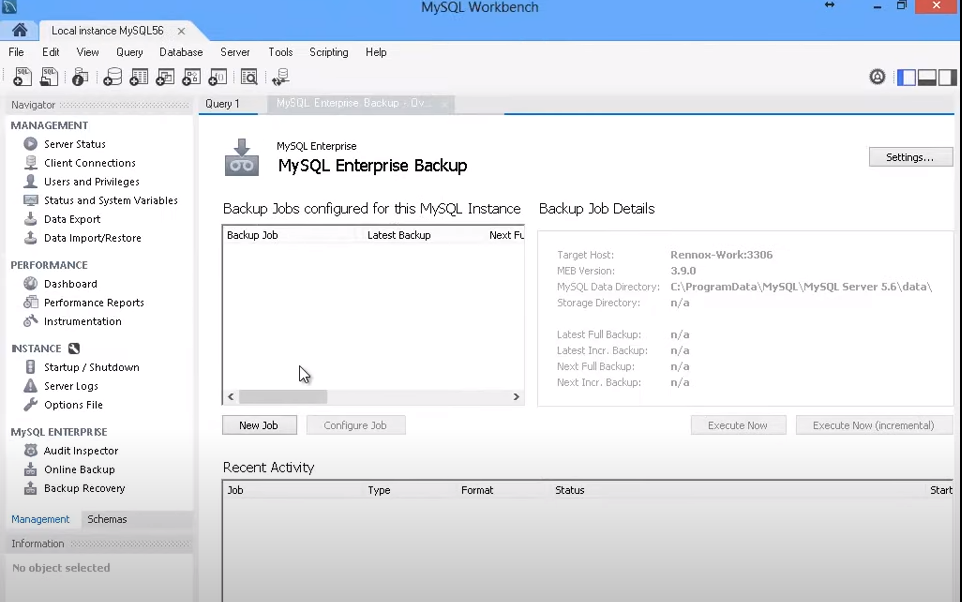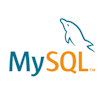MySQL
About MySQL
Awards and Recognition
MySQL Pricing
MySQL offers a free trial for new users, after which the software is available across 4 commercial editions. Pricing and functionality are outlined below. MySQL Cluster Carrier Grade Edition Subscription (1-4 socket server): starts at $10,000 per year MySQL Cluster Carrier Grade Edition Subscription (5+ socket server): starts at $20,000 per year MySQL Enterprise Edition Subscription (1-4 socket server): starts at $5,000 per year MySQL Enterprise Edition Subscription (5+ socket server): starts at $10,000 per year MySQL Standard Edition Subscription (1-4 socket server): starts at $2,000 per year MySQL Standard Edition Subscription (5+ socket server): starts at $4,000 per year MySQL Classic Edition (only available for ISVs/OEMs)
Starting price:
$2,000.00 per year
Free trial:
Available
Free version:
Available

Most Helpful Reviews for MySQL
1 - 5 of 2,051 Reviews
Frank
Computer & Network Security, 11 - 50 employees
Used more than 2 years
OVERALL RATING:
5
Reviewed October 2021
MySQL
Filipe
Verified reviewer
Information Technology and Services, 1 employee
Used daily for more than 2 years
OVERALL RATING:
5
EASE OF USE
5
VALUE FOR MONEY
4
CUSTOMER SUPPORT
4
FUNCTIONALITY
4
Reviewed January 2020
MySQL review
With MySQL i can sell more software because I can sell cheaper, and the performance is the same than others
PROSMySQL is a great to database and is very very powerfull I use it everyday on my work when I develop web applications for my clients MySQL is reliable and have some great admistration tools with great value MySQL works very good and uses less system resources than other similar softwares
CONSMySQL have all that I need to do my work perfect with less cost than others similar softwares MySQL works great for web applications, with good performance
Reason for choosing MySQL
With MySQL I have the same performance with less cost
Reasons for switching to MySQL
MySQL works great on windows and linux, uses less system resources than other softwares
Aleksandr
Verified reviewer
Computer Software, 501-1,000 employees
Used daily for more than 2 years
OVERALL RATING:
4
EASE OF USE
5
VALUE FOR MONEY
5
FUNCTIONALITY
5
Reviewed April 2021
Great overall but has some very important caveats.
Mysql as any other tools has it's advantages and downsides. It may be fast, ACID-compatible, it may serve as memory cache. It has some dark corners and sometimes may hang on complex queries, or even corrupt the data (this is really rare case, but I faced it more than 10 times during my experience). Consider your scenario carefully. And always, always, ALWAYS make backups.
PROSThere a whole world of documentation, best practice, books on mysql. It can be found on nearly any cloud, system, paas. It is really fast (on MyISAM), support transactions (InnoDB), may perform as in-memory cache (memory), or even CSV (never use this one except for testing or reports). Deploy and set up takes next to no time, it consumes very little resources. Actually I feel it is hard to write a review on MySql because over decades of extensive usage it become the standard de-facto, even LAMP has (M) for MySQL. It is a mature if, well known RDBMS with tons of extensions and forks (not sure I may name them here). It is worth to mention though that MySQL is a default backend storage for a whole number of software. MySQL is compliant to SQL standard though with some differences. It may require some changes to your codebase but still, they should not be critical. What will really surprise you is that ORDER by lacks "nulls first/last" clause and that collates may surprise you. In a somewhat unpleasant way. Window functions, virtual tables, temporary tables are here as well and trust me - this is quite important matter, something that is a vital part of any DB. You will find a lot of web and standalone management tools to work both with server and data, some of them are free, others are not, chose yours.
CONSFirst and biggest cons is that MySQL is not suitable for big amount of data. It always had and still have troubles performing complex joins. Database may get corrupted under some scenarios when significant selections is performed same time as other clients perform batches of inserts/updates (basically, there is a long lasting bug in memory management). Transactions are available in a single engine InnoDB and it is much slower than MyISAM. Worst thing is that in scenarios with multitenant databases with somewhat mediocre load MySQL starts to leak memory. This i a known well-issue, and there is no cure at this moment, you have to reboot the database instance. This is simply a disaster. Performance insight is something that could enjoy some more love. While Mysql is compatible with most of standard SQL, there are still some hard to explain differences.
Reason for choosing MySQL
Mysql is still used in some of our projects, but we are on our way to switch to another RDBMS for the reasons I described above.
Anonymous
11-50 employees
Used daily for more than 2 years
OVERALL RATING:
3
EASE OF USE
5
VALUE FOR MONEY
5
CUSTOMER SUPPORT
2
FUNCTIONALITY
5
Reviewed August 2019
MySQL the default database server
We just use MySQL for all of our databases
PROSIt's the default standard for many companies. MySQL has grown into a very stable product that never crashes. We've made the move to MariaDB, but found that the tables sometimes get corrupted when restarting a database server under heavy load. With the recent speed improvements to MySQL, we have decided to actually migrate back to MySQL.
CONSI'd really like if they would spend a bit more time on their CLI interface. As in, syntax highlighting in the CLI, an easier way to scroll through multiline queries when going through the history. I would also like it if we can specify a color scheme to use for the output.
Reason for choosing MySQL
both other servers come highly recommended by other parties, but for some reason they just don't have the feature that we're looking for.
Reasons for switching to MySQL
MariaDB crashes too much.
John
Marketing and Advertising, 2-10 employees
Used daily for less than 2 years
OVERALL RATING:
5
EASE OF USE
4
VALUE FOR MONEY
5
CUSTOMER SUPPORT
5
FUNCTIONALITY
5
Reviewed December 2023
SQL Review
SQL is one of the best programs that deal with relational databases, that is, those that are based on relationships between tables. It also provides many advantages for data, including high protection, privacy, and integrity.
CONSOne of its disadvantages is that it is difficult for beginners to deal with, due to the large number of tools and commands in it





